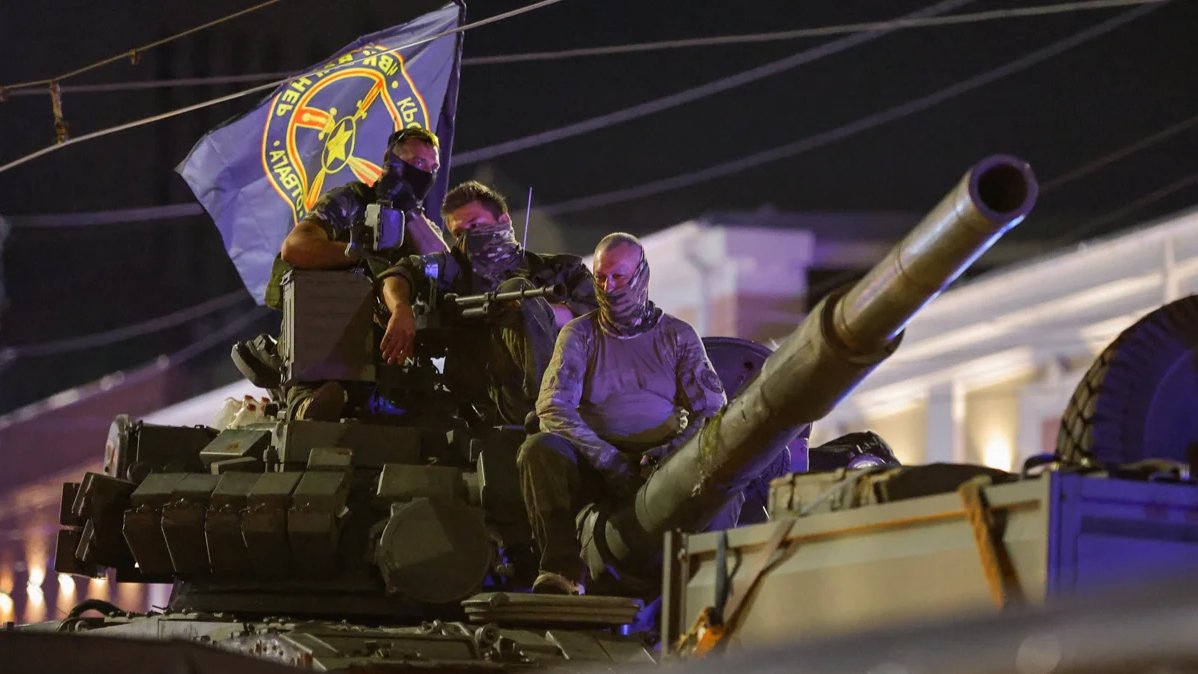“There are 25,000 of us, and we’re going to find out why the country is in chaos”. It was with these ominous words that, on the evening of Friday 23 June 2023, warlord Yevgeny Prigozhin announced the start of his ill-fated mutiny against Russia’s military leadership. For just under 24 hours, Prigozhin and his thousands of loyal Wagner Group mercenaries had Vladimir Putin running scared, a brazen display of lèse-majesté that would ultimately cost him his life.
Wagner tanks set out from Russian-occupied eastern Ukraine that Friday evening and by dawn on Saturday had rolled into the southern Russian city of Rostov-on-Don. With Rostov’s central streets under the control of Wagner forces, columns of Prigozhin’s troops then began what he called a “march for justice” towards Moscow, intending to overthrow Russia’s then-Defence Minister Sergey Shoigu and the Russian military’s Chief of Staff Valery Gerasimov — if not Putin himself.
By Saturday evening, however, having shot down a Russian Air Force command centre plane and six military helicopters on their approach to the Russian capital and killing between 13 and 20 crew members in the process, the Wagner columns abruptly halted their advance 200 kilometres from Moscow before retreating.
Officially, the story was that Prigozhin had been persuaded to abandon his plans for an armed uprising after an intervention by Belarusian leader Alexander Lukashenko.
Exactly two months later, Prigozhin was dead — killed alongside Wagner’s top brass when his private jet crashed over Russia’s central Tver region, a convenient accident widely thought to have been orchestrated by Putin.
Initially exiled to Belarus following the mutiny, what remained of the Wagner Group was slowly dismantled in the months following Prigozhin’s death. Some of the mercenaries who had joined the group’s co-founder for the march on Moscow were absorbed into the Russian military and National Guard. Some went to Africa to fight with other Russian mercenary organisations, while others simply returned home.
Novaya Europe spoke with several former Wagner mercenaries to hear their memories of the events of June 2023, as well as the current state of the Wagner Group, and how Russia’s war with Ukraine will end. Their names and call signs have all been changed.
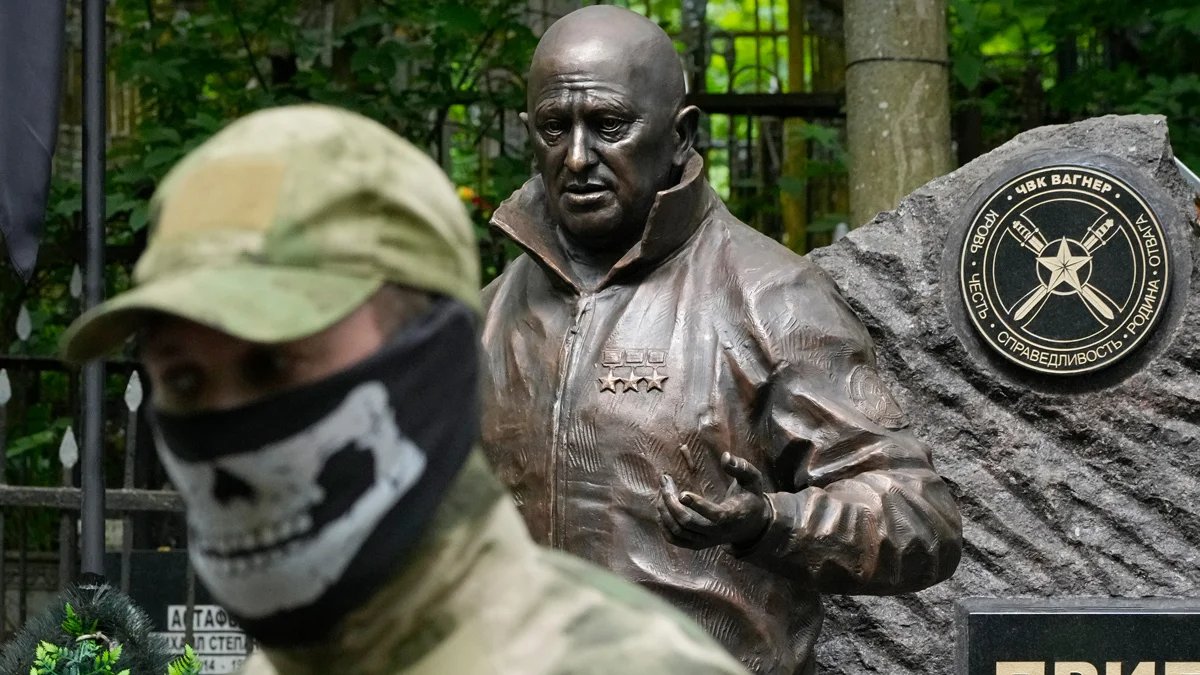
A man wearing Wagner gear at Prigozhin’s grave in St. Petersburg in June. Photo: Dmitry Lovetsky / AP Photo / Scanpix / LETA
Flipping the board
Artur, callsign: Gold
A year has passed, and there have been no significant changes in my life since then. I’ve been in this business for a long time, so I’m keeping busy. I still have the “best job in the world” and I’m used to the heat.
Hindsight is a wonderful thing. The overall picture is clearer now, but my opinion [on the mutiny] hasn’t changed much. It’s just a shame we missed some opportunities. It was like a game of chess that had reached a stalemate, and we had to change something — either by flipping the board or sticking the queen into our opponent’s eye. The march was one of the options, and it’s a shame its goals weren’t achieved.
We’ll definitely beat the Ukrainian army, but the war’s never going to end. Because, among other things, war is a mode of existence — one of many.
Would Prigozhin still be alive if it weren’t for the mutiny? What happened, happened. There’s no point speculating about what could have been. By that point, things had already gone too far. I think if Prigozhin were alive, then Shoigu would be dead. My thoughts on Shoigu and Gerasimov are unprintable, but time will put everything in its place.
We’ll definitely beat the Ukrainian army, but the war’s never going to end. Because, among other things, war is a mode of existence — one of many. New, young countries want liberation from the yoke of foreign oppressors. What I tell them is this: keep calm and wait for the Russians to come.
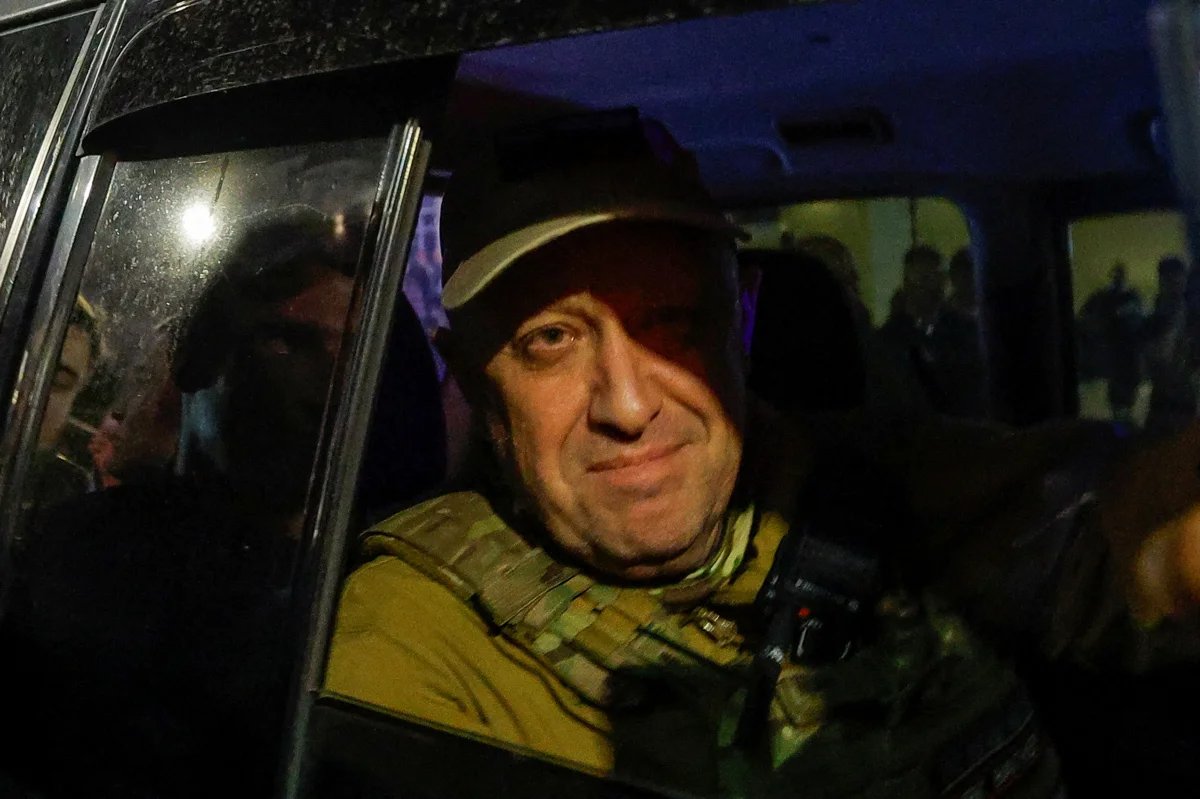
Yevgeny Prigozhin after the mutiny in Rostov-on-Don, 24 June 2023. Photo: Alexander Yermochenko / Reuters / Scanpix / LETA
Killing under a different banner
Alexander, callsign: “Perm”
Nothing fundamental has changed in my life. The orders are the same, and so’s the money. There’s still no meaning to any of this, either. I’m serving in the Central African Republic now.
So what exactly has changed over the past year? I was sure then and I’m sure now that if Prigozhin had entered Moscow, absolutely everyone would have pledged allegiance to him.
In 2023 we had an idea — to change the way things were run. And we had the chance to do it. We don’t have that chance any more. It’s every man for himself now.
Back then, we all knew we’d be shut down at some point, and probably sooner rather than later. They didn’t need to hold any grenade-throwing competitions. All they had to do was give a few orders and transfer the core of the group out of Ukraine. And that’s pretty much what they did: they divided us across Africa, Belarus and “Chechnya” [the Chechnya-based Akhmat unit of Russia’s National Guard].
Some left Wagner to join the army or the National Guard. What’s strange about that? Can you really judge a mercenary for carrying out orders to kill, just under a different banner? In 2023 we had an idea — to change the way things were run. And we had the chance to do it. We don’t have that chance any more. It’s every man for himself now.
The war will end when one of our countries ceases to exist. And it won’t be because of what happens on the battlefield. The leaders will do everything themselves as they fight for power.
Useless commanders
Roman, callsign: “Fourth”
The march was an obvious mistake, because the Supreme Commander-in-Chief never makes decisions under pressure. Prigozhin got carried away playing politics and didn’t realise the real weight he had in the system. If the march on Moscow hadn’t happened, he’d still be alive, for sure. And he’d still be commanding Wagner.
Nothing has changed for us. We’re serving in different places and different units: the army and the National Guard. As for believing in victory … as long as there’s no betrayal, the war will end with our unconditional victory. We’re Russian. We have God on our side and the most extensive war experience of all major powers that exist today.
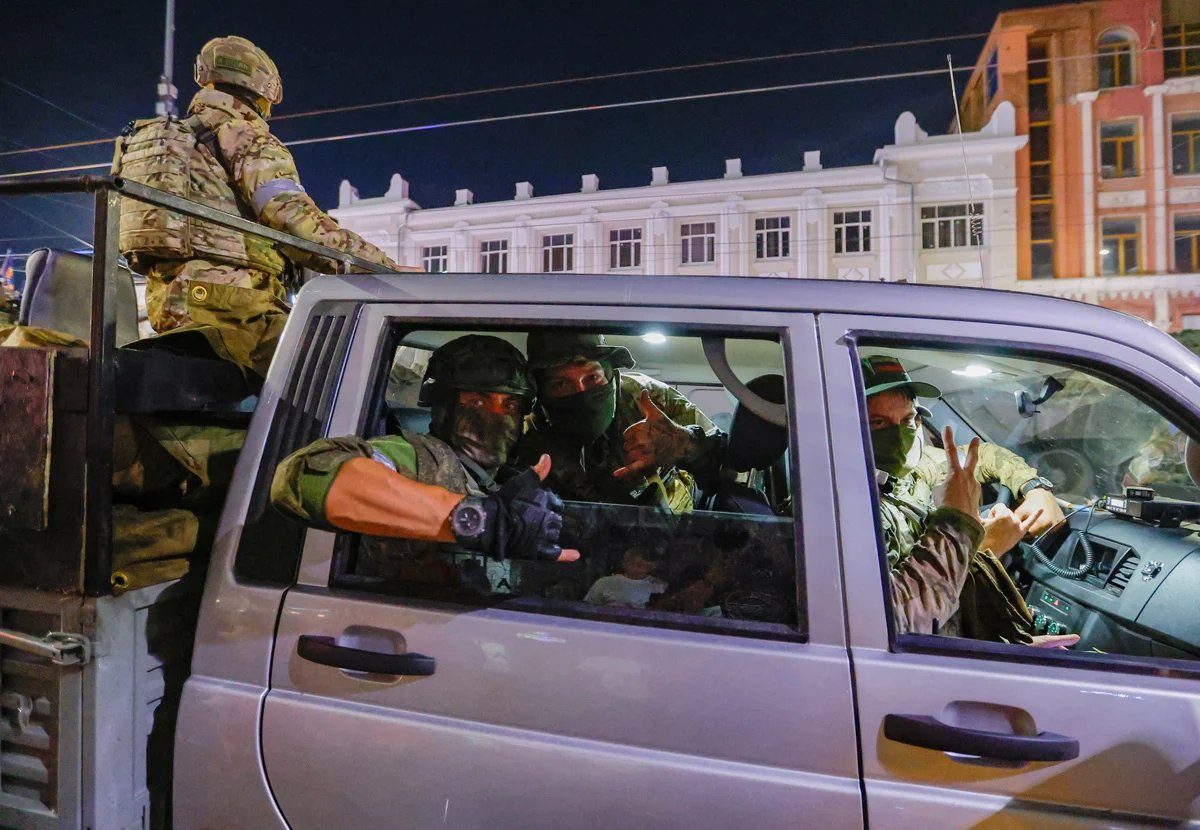
Wagner mercenaries leaving Rostov-on-Don on 24 June 2023. Photo: Alexander Yermochenko / Reuters / Scanpix / LETA
Boris, callsign: “Start”
I’m not serving any more, I work as a mechanic now. We’ve had time to think over the past year. We almost sparked a civil war, which we could have won. The only question is at what cost, and that cost would have been very high. It was a rollercoaster — first we were drunk on what we were doing, then we regretted what we didn’t do. Then the feelings faded, and we stopped caring.
I don’t know if Prigozhin would have survived if the march hadn’t happened. But I don’t even know if he really died or not.
Shoigu and Gerasimov had the time and resources to prepare the army for a major war. And they had an example of how to do it — our example. The army turned out to be unprepared. So they, as commanders, were useless.
I’d like the war to end with our victory. But that victory is very far away.
A fool’s errand
Andrey, callsign “Raven”. Former prisoner.
I’m a grenadier, I operate a Plamya grenade launcher. A year ago, I was with Wagner in Rostov. But I can’t go into details, or I’ll be arrested. We all signed non-disclosure agreements.
Now I serve in the Redut private military company, which is under the control of the Defence Ministry. The pay’s the same as it was in Wagner: over 300,000 rubles (€3,100) a month with bonuses. Over the past year, experienced Wagner fighters have all been transferred to active units.
The “march for justice” was a fool’s errand on Prigozhin’s part. He’d expected to scare Putin into handing Shoigu over to him for slaughter. It didn’t work out, even though Prigozhin was resolute at first.
Those who really didn’t want to serve under the command of Prigozhin’s former opponents left for warm countries. But most joined the army or the National Guard, which reports directly to the president.
The rebellion started when Shoigu demanded we sign contracts with the Defence Ministry. That was what both Prigozhin and a lot of us in Wagner were trying to avoid. So serving in the National Guard became the solution for many in the end. Some even joined Akhmat in Chechnya, who had once been Wagner’s fiercest enemies. You can understand why. They can’t do anything else. Fighting for money is all they know.
The “march for justice” was a fool’s errand on Prigozhin’s part. He’d expected to scare Putin into handing Shoigu over to him for slaughter. It didn’t work out, even though Prigozhin was resolute at first.
He instructed us to shoot down aerial targets and ordered the columns heading to Moscow to break through any roadblocks and defence lines. But when it became clear that we wouldn’t be able to enter the capital without a serious fight, he got scared and gave in to pressure to stop the march. Even though by that point we had the support of [Russian neo-Nazi paramilitary group] Rusich and the Storm Z units [made up of former convicts].
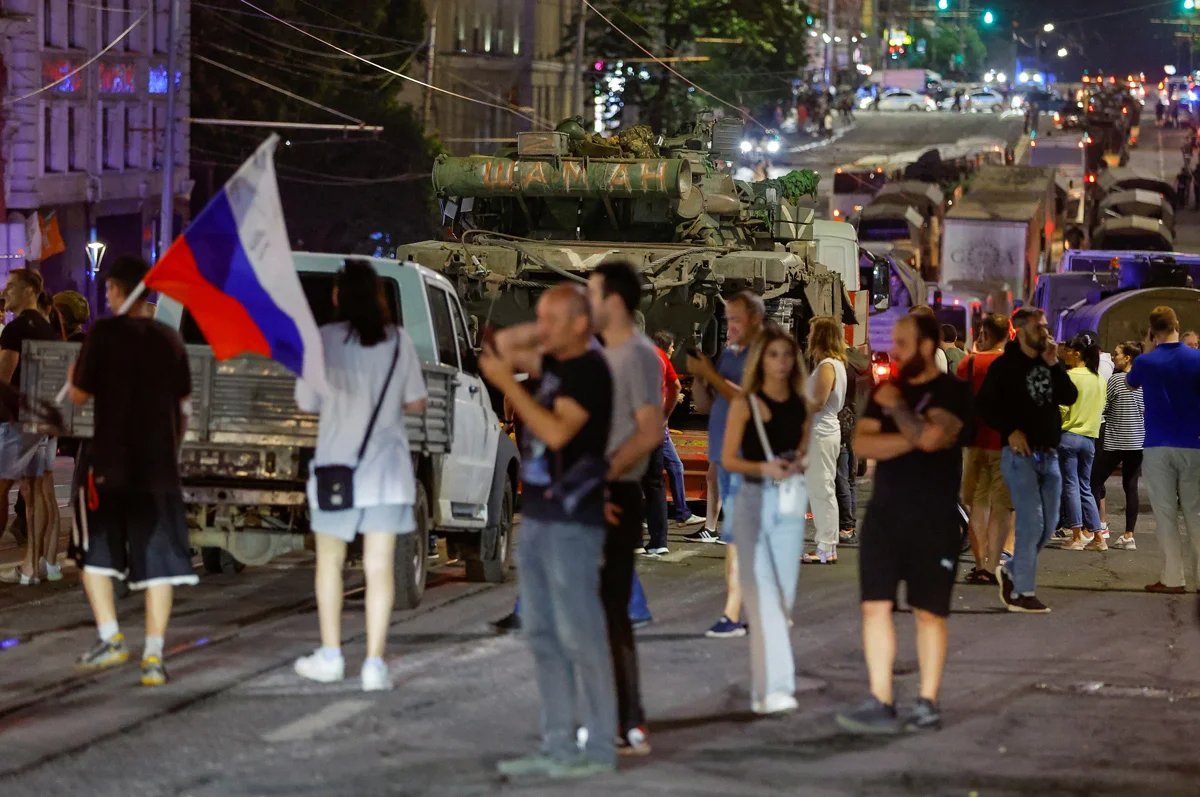
Wagner mercenaries leaving Rostov-on-Don on the evening of 24 June 2023. Photo: Alexander Yermochenko / Reuters / Scanpix / LETA
Pretty significant forces had already been deployed on the approaches to Moscow, and we couldn’t attack them while on the move. The commanders had no plan for storming the city and no specific objectives had been set. Though a few Wagner guys had already been taken out for openly opposing the march on Moscow, a lot more would have refused to actually engage the Russian military. Especially since the missile attack on the Wagner camp, which was the pretext for the uprising, was clearly staged.
I think Prigozhin could have continued to operate very successfully had he left Russia and kept enough distance between himself and the military leaders he’d clashed with. Wagner had, and still has, many interests in Africa, though Russian positions there have significantly weakened now.
I’m glad Shoigu was finally removed. While he was defence minister, his mates looted and plundered the army. They didn’t think they’d ever have to fight for real.
It’s clear they took Prigozhin out by playing him at his own game. He would have done the same with any of his commanders if they’d rebelled. It’s a shame [Wagner co-founder] Dmitry Utkin and everyone else on board were killed. But the government couldn’t simply leave a threat like that unanswered. So they executed them all and forgot about the whole episode. It’s interesting that there was barely even a proper investigation.
Gerasimov and Shoigu were Prigozhin’s personal enemies. We were told they were deliberately supplying Wagner with insufficient ammunition. But we saw that regular units didn’t have enough ammunition either. The real cause of the conflict was an attempt to deprive Prigozhin of his power base in Russia. At first, Putin liked having two counterweights. But then Prigozhin got carried away and became dangerous.
Personally, I don’t see any problem with serving in the army. We all fight to achieve the same goals, to crush the enemy. I’m glad Shoigu was finally removed. While he was defence minister, his mates looted and plundered the army. They didn’t think they’d ever have to fight for real.
The war will end with negotiations. Russia will get the Donbas region and another chunk of territory, as much as it can take. Then the fighting will stop and we’ll be sent home. But where the former mercenaries who are elbow-deep in blood will go, I don’t know. Hopefully there’s enough room for everyone in Africa.
